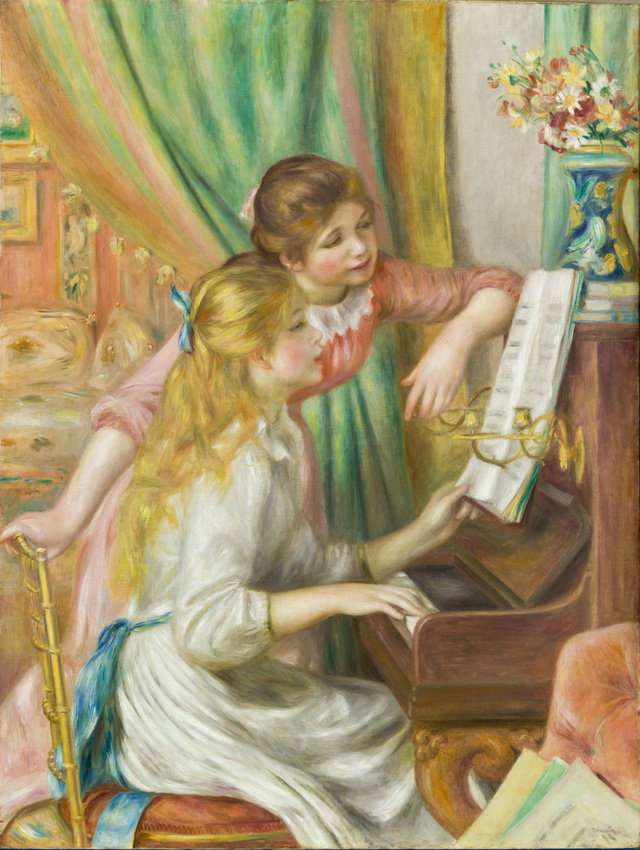"If you will ask of me you shall receive; if you will knock it shall be opened unto you. Now, as you have asked, behold, I say unto you, keep my commandments, and seek to bring forth and establish the cause of Zion; Seek not for riches but for wisdom, and behold, the mysteries of God shall be unfolded unto you, and then shall you be made rich. Behold, he that hath eternal life is rich. Verily, verily, I say unto you, even as you desire of me so it shall be unto you; and if you desire, you shall be the means of doing much good in this generation."
Imagine yourself as a Christian teacher, a believer, well versed in the Bible, and while well educated, you're not necessarily a scholar, you're just earnest. Your education is in the basics of rhetoric and math, science and civics, not ministry. And yet your honest service among school children mirrors a pastor's work in many important ways. You were well brought up immersed in a scripture-filled home, and your liberal arts education has trained you not just in the skills of a profession, but has trained you to frame your profession as a pursuit that can contribute to a meaningful life, but not as its endpoint. In fact, you have some doubts about what your career should really be centered on--you are willing to earn your keep, but know that it's in what you choose to do with your free time that you may have the most impact. Also, in fact, you've been employed at fairly meaningless tasks longer than you have been an actual teacher--like a clerk whose function is important to keeping the books for a business, but whose work is not very spiritually satisfying by itself. Teaching has allowed you to have a more direct purpose--the education of children is satisfying and important in many ways--but you're not sure this is the career for you, and are maybe thinking about giving it up at the end of the school year.
This description is not far off from Oliver Cowdery's situation in 1829. As was common in the period, he boarded with parents of some of his students near Manchester, NY. But his boarding hosts, Joseph Senior and Lucy Mack Smith, were not so common. They had spent the last 10 years in that greater Palmyra area making ends meet, but living on the social margins on account of their son's incredible stories of theophanies, angelic visitations, and especially a remarkable gold book. Understandably, during the fall months of the school year, the head of household was a little tight-lipped with the stranger living among them. But after a February visit, and a revelation received through his son in which he was encouraged to commit more fully to sharing what testimony he could provide, the senior Smith dropped his reticence and opened up to Oliver about his son's translation project. It took Oliver under 8 weeks to become convinced that he should put down his teaching gig as spring planting season took his students out into the fields, and serve as scribe for the translation project.
This is the kind of character and historical context that might bring to life a sense of meaning as the passage above is dictated to him through revelation.
Imagine now this eager young adult with his Biblical upbringing, hearing Joseph Smith, Jr. speaking Messianically, voicing some of the most often repeated messages of the Savior Himself. What ends of phrases are you expecting when he says "ask and you shall..."? Is it "receive"? What about "knock and it shall..."? Are you expecting "be opened unto you"?
So where's the "seek" part? Aren't we supposed to read those in a familiar package of three?
Seek does appear above, but it's sticking out like a sore thumb for all the extra instructions it comes with and for being out of its customary order. This version is not the clean and concise "seek and ye shall find" that we're expecting from its formulation to the disciples at the Sermon on the Mount. It tells Oliver what to seek: the cause of Zion (incidentally, this is the first D&C mention of Zion, which itself will become an oft-repeated theme in the book) and wisdom. It tells Oliver what not to seek: worldly remuneration.
This variation on the theme of petitioning God and faithful work toward goals He sanctions seems striking to me as a pedagogical method. Oliver is being given what he asks: direction. Just as wise Solomon was praised by the Lord for asking from its Source for even greater wisdom not for himself, but for better serving his people, Cowdery was receiving encouragement to prioritize greater things than what the world could offer. And because of the "variation on a theme" manner in which this message was delivered, it must have struck him with force.
In a way, we are all Oliver when we seek the Lord's counsel. And His answer always includes some form of impetus to align our desires with His: to do good. What themes has the Lord varied to teach you how to better produce such an alignment in your life?


No comments:
Post a Comment